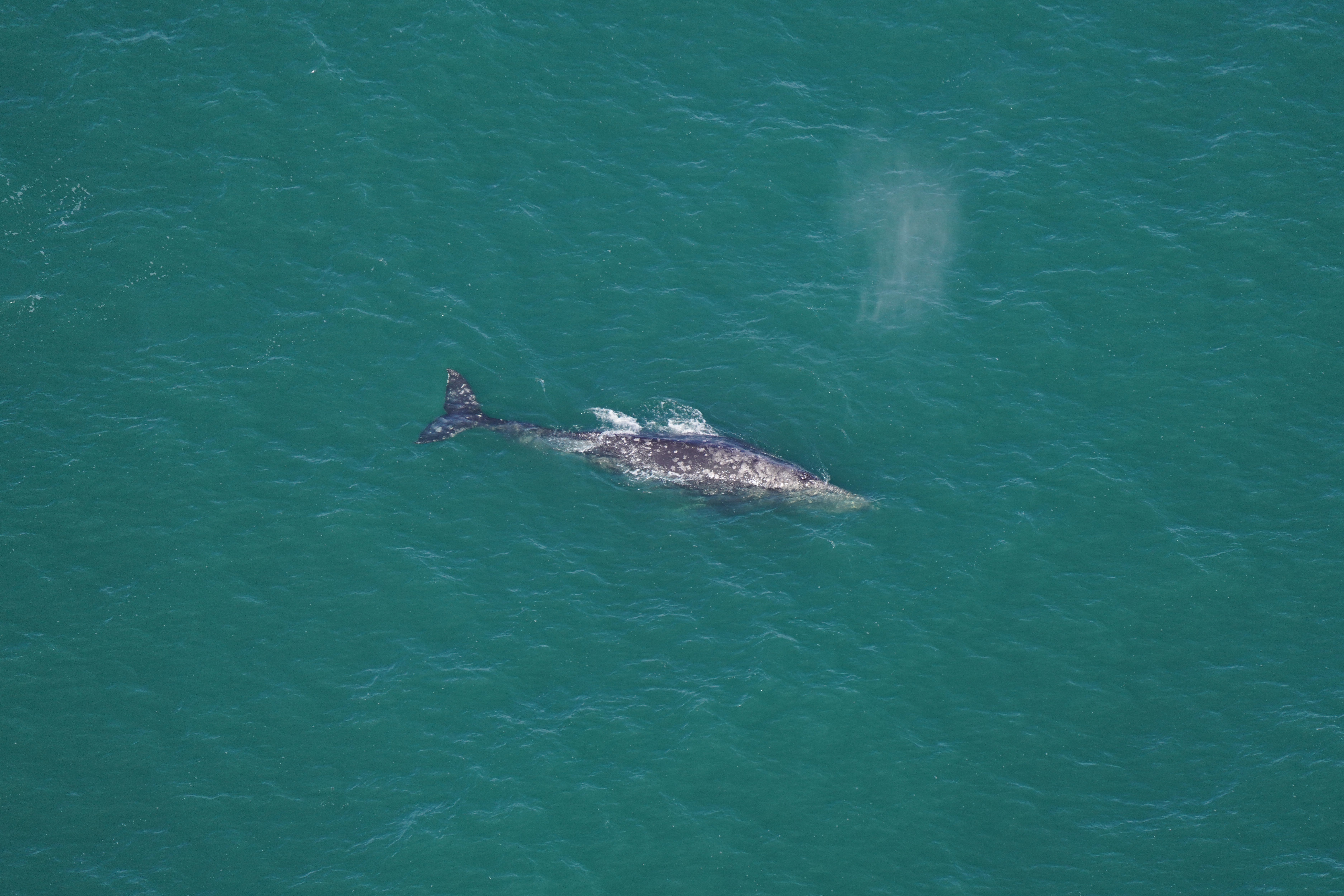Rare grey whale thought to be extinct in Atlantic for 200 years is spotted off Nantucket
Researchers believe climate change has opened up a route for the whales usually seen in the Pacific

Your support helps us to tell the story
From reproductive rights to climate change to Big Tech, The Independent is on the ground when the story is developing. Whether it's investigating the financials of Elon Musk's pro-Trump PAC or producing our latest documentary, 'The A Word', which shines a light on the American women fighting for reproductive rights, we know how important it is to parse out the facts from the messaging.
At such a critical moment in US history, we need reporters on the ground. Your donation allows us to keep sending journalists to speak to both sides of the story.
The Independent is trusted by Americans across the entire political spectrum. And unlike many other quality news outlets, we choose not to lock Americans out of our reporting and analysis with paywalls. We believe quality journalism should be available to everyone, paid for by those who can afford it.
Your support makes all the difference.A whale species, which has been considered extinct in the Atlantic Ocean for 200 years, has been spotted off the New England coast in what experts have described as an “incredibly” rare event.
The grey whale was spotted on 1 March by New England Aquarium scientists as they flew around 30 miles south of Nantucket in Maine.
The survey plane circled for around 45 minutes, with researchers taking photos as the whale repeatedly dove and resurfaced, apparently feeding.
“I didn’t want to say out loud what it was, because it seemed crazy,” Orla O’Brien, an associate research scientist in the Anderson Cabot Center for Ocean Life at the New England Aquarium, said in a press release.
Ms O’Brien showed the images to fellow passenger Kate Laemmle, a research technician.
“My brain was trying to process what I was seeing, because this animal was something that should not really exist in these waters,” Ms Laemmle said. “We were laughing because of how wild and exciting this was—to see an animal that disappeared from the Atlantic hundreds of years ago!”
While grey whales are frequently seen on the other side of the United States, in the North Pacific Ocean, they had disappeared from the Atlantic by the 18th century.
That changed around 15 years ago, when the mottled grey and white whales started to be spotted in both the Atlantic and the Mediterranean Sea.
The last known sighting was off the Florida coast in December and scientists believe the whale seen further north last week was the same whale.
Scientists believe the change has been driven by climate change.
New England Aquarium explained that the Northwest Passage, which connects the Atlantic and Pacific through the Arctic Ocean in Canada, has regularly been ice-free in the summertime in recent years.
The lack of ice has given the whales the space to pass through – something that would not have been possible over the past 200 years.
The National Oceanic And Atmospheric Administration Fisheries says the grey whale can weigh up to 90,000 pounds and grow to around 49 feet in length.
“This sighting highlights how important each survey is. While we expect to see humpback, right, and fin whales, the ocean is a dynamic ecosystem, and you never know what you’ll find,” Ms O’Brien added.
“These sightings of grey whales in the Atlantic serve as a reminder of how quickly marine species respond to climate change, given the chance.”
Join our commenting forum
Join thought-provoking conversations, follow other Independent readers and see their replies
Comments